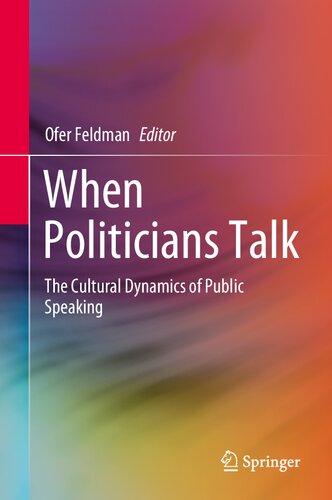

Most ebook files are in PDF format, so you can easily read them using various software such as Foxit Reader or directly on the Google Chrome browser.
Some ebook files are released by publishers in other formats such as .awz, .mobi, .epub, .fb2, etc. You may need to install specific software to read these formats on mobile/PC, such as Calibre.
Please read the tutorial at this link: https://ebookbell.com/faq
We offer FREE conversion to the popular formats you request; however, this may take some time. Therefore, right after payment, please email us, and we will try to provide the service as quickly as possible.
For some exceptional file formats or broken links (if any), please refrain from opening any disputes. Instead, email us first, and we will try to assist within a maximum of 6 hours.
EbookBell Team

4.8
64 reviewsThis book details the relationship between culture and the language used by public figures, including politicians, political candidates, and government officials, in the broad context of political behavior and communication. Employing a variety of perspectives, theoretical, conceptual, methodological, and analytical approaches, chapters focus specifically on the question of HOW cultural factors (such as religion, history, economy, majority/minority relations, social structure, and values) shape the content, nature, and characteristics of the rhetoric that public figures utilize in selected countries in the Americas, Europe, Asia, Oceania, and the Middle East.
The chapters enable comparison of the cultural effects on the different structures, styles, and contents of public speaking in societies from West to East. That is, of WHAT leaders say, HOW they say it (e.g., degree of openness, directness, usage of metaphors and slogans, xenophobic and racial expressions), under WHICH specific circumstances (e.g., National Days addresses, national or local assemblies’ debates, during election campaigns appeals, press conferences’ briefings, and in international meetings’ speeches), and for WHAT specific audiences (e.g., supporters and voters, media representatives, or the global community).